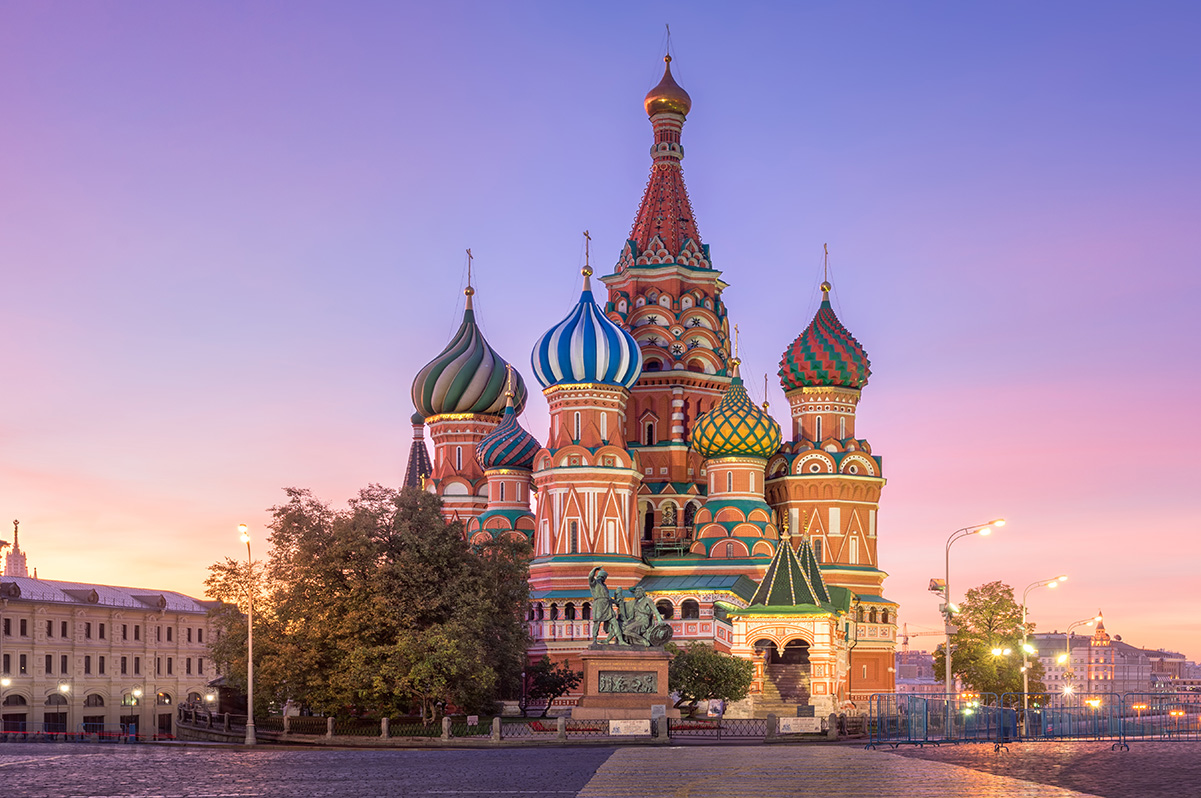World
Out in the World: LGBTQ news from Europe, North America, and Asia
Georgian lawmakers on Sept. 17 approved package of anti-LGBTQ bills

GEORGIA
In a move that has drawn international condemnation, the Georgian government passed a package of draconian anti-LGBTQ bills through parliament Sept. 17 in a unanimous vote that was boycotted by the opposition.
The new law, dubbed the Law on Family Values and Protection of Minors, bans recognition of any same-sex relationship, ban adoption by transgender people or non-heterosexuals, ban the promotion of same-sex relationships or LGBTQ identities including through the media or public gatherings, and ban legal gender change or medical interventions for gender reassignment. The bills mirror similar bills passed in Russia, which have led to a serious and escalating crackdown on LGBTQ people.
President Salome Zourabichvili has said she intends to veto the legislation, but the ruling Georgian Dream party has enough votes to override any veto.
Opposition parties have been boycotting parliament since the government passed a “foreign agents” law that requires any organization receiving funds from outside the country to register as an agent of a foreign power. Critics said that the bill was a clear mechanism to defund or discredit the opposition, the media, and the nongovernmental organizations.
Both the foreign agent law and the anti-LGBTQ law had already drawn criticism from the international community, but the passage of the anti-LGBTQ law brought a new round of diplomatic condemnation.
The U.S. announced financial sanctions and travel bans on dozens of Georgian leaders it says are complicit “undermining democracy” and “serious human rights abuse.”
The EU had already frozen accession talks with Georgia after the foreign agents bill was passed. This week, it announced it was considering removing access to visa-free travel to the EU for Georgian citizens.
The U.N. Human Rights Office also called on the Georgian government to rescind the law.
“We are deeply concerned that this law may encourage hate speech, lead to more incidents of violence, and reinforce stigma, intolerance and misinformation,” spokesperson Liz Throssell said in a statement.
That statement proved to be sadly prophetic. The day after parliament voted to pass the anti-LGBTQ legislation, Georgia’s most prominent trans woman was murdered in her home.
Kesaria Abramidze, 37, was a model and social media influencer. She was found dead in her apartment after neighbors heard screams. A 26-year-old man has been arrested in connection with the crime.
“Horrifying murder! Rejection of humanity! This should be a sobering call … Hatred drenched in hatred, which weakens and divides us and gives a hand to an enemy to manipulate us,” Zourabichvili wrote on her personal Facebook page. “I hope the death of this beautiful young woman will make us more humane, more Christian. I hope this tragedy will not be in vain.”
The new laws come as the small country located in the Caucasus Mountains gears up for elections on Oct. 26. Georgian Dream looks set to capture the largest share of votes according to polls, but the opposition parties are mostly aligned on the goal of restoring democratic norms if they can form a majority coalition.
EUROPEAN UNION
European Commission President Ursula von der Leyen announced her intention to ban so-called “conversion therapy” across the EU in a mandate letter sent to the new EU Commissioner for Equalities this week.
The letter to Hadja Lahbib, who also serves as Belgium’s minister of foreign affairs, directs her to “propose a new LGBTIQ Strategy for post-2025. The strategy should notably focus on the continued and persisting hate-motivated harassment and violence, including online, and banning the practice of conversion therapy.”
It is not immediately clear how von der Leyen or Lahbib envision a conversion therapy ban – either through EU-wide legislation or by encouraging member states to ban it individually.
Of the EU’s 27 member states, eight already ban conversion therapy in local law: Spain, Portugal, Malta, Greece, Cyprus, Germany, France, and Belgium. Bans have also been proposed in Ireland, Netherlands, Austria, and Finland, but legislation in all four states has stalled.
At the same time, several EU member states have passed or introduced legislation to restrict freedom of expression for LGBTQ people, calling it “LGBT propaganda,” including Hungary, Slovakia, Bulgaria, and Lithuania.
CANADA
Dueling protests for and against LGBTQ-inclusive sex education took place across Canada on Sept. 20 with rallies across the country timed as some provinces head toward local elections.
Anti-LGBTQ groups calling themselves Hands Off Our Kids and 1 Million March 4 Children coordinated the anti-sex education protests, as they did last year. Protests were reported in more than a dozen cities across Canada; including Toronto, Montreal, Vancouver, Edmonton, Calgary, Winnipeg, Moncton, Saskatoon, and Ottawa.
Right-wing media in Canada breathlessly reported Hands Off Our Kids’ estimate that up to two million people — about 5 percent of all Canadians — would participate in the protests. As it turned out, most of the anti-sex education protests saw fewer than 100 participants, and according to reports, all of them were outnumbered by pro-LGBTQ counter-protesters.
Unlike last year’s protests, there were no reports of violence or arrests.
The protests come at a pivotal time for LGBTQ issues in Canadian schools.
In Alberta, the conservative provincial government is planning to introduce legislation in the fall that would require schools to notify parents and obtain their consent if a student chooses to use a different name or pronoun, restrict trans students’ access to school sports and bathroom facilities, require parental notification and consent before any sex education or LGBT issues are discussed in classrooms, and ban gender care for youth under age 16.
Alberta Premier Danielle Smith has also said that after the legislation passes, her party would welcome back lawmaker Jennifer Johnson, who had been booted from caucus after remarks she had made comparing trans students in schools to adding a teaspoon of feces to a batch of cookies.
Three provinces will hold elections in October, in which LGBTQ classroom issues are in the balance. In New Brunswick and Saskatchewan — which go to the polls Oct. 21 and 28, respectively — incumbent conservative governments are defending recently enacted policies that require schools to out trans students to their parents and restrict sex education.
In British Columbia, the opposite is happening. An incumbent New Democratic government is defending its SOGI-123 curriculum that teaches children about inclusion, consent, and health issues in age-appropriate ways, while the opposition BC Conservatives want to scrap it.
Polls in all three provinces indicate very tight races. Earlier this year, a conservative government in Manitoba was defeated after it announced plans to introduce a parental notification and consent law for trans students.
TAIWAN
In a bit of uplifting news, Taiwan announced this week that it would finally remove an administrative roadblock that prevented Taiwanese citizens from marrying a same-sex partner from mainland China.
Same-sex marriage has been legal in Taiwan since 2019, but the government refused to recognize same-sex marriages between Taiwanese and Chinese nationals, due to security concerns and the island’s complicated relationship with the mainland.
Taiwanese who wish to marry a Chinese national must typically marry in China and await an interview by Taiwanese authorities before their relationship is recognized and their partner is granted residency rights on the island. But because China does not recognize same-sex marriage, that’s impossible.
In August, a Taiwanese court ordered the government to begin the interview process for a cross-strait couple who married in the United States. This week, Taiwan’s Mainland Affairs Council announced that it would comply with the decision and recognize cross-strait same-sex marriages performed in any third country where same-sex marriage is legal.
That still presents a roadblock for some couples, as they must travel to a third country to marry. For now, the nearest places for most same-sex couples to travel would be the US territory of Guam or Australia. Thailand is expected to begin performing same-sex marriages next year.
Additionally, cross-strait same-sex couples may still face an administrative burden in settling in Taiwan, as the Chinese partner must cancel their mainland residency before receiving a Taiwanese ID — the last stage in the process. It’s not clear if China will allow its nationals to cancel their residency, as the government will not recognize their same-sex marriages.
Russia
Russia designates ILGA World an ‘undesirable’ group
Justice Ministry announced designation on Jan. 21

Russia has designated a global LGBTQ and intersex rights group as an “undesirable” organization.
ILGA World in a press release notes the country’s Justice Ministry announced the designation on its website on Jan. 21.
The ministry’s website on Tuesday appeared to be down when the Washington Blade tried to access it. ILGA World in its press release said the designation — “which also reportedly includes eight other organizations from the United States and across Europe” — “has been confirmed by independent sources.”
“ILGA World received no direct communication of the designation, whose official reasons are not known,” said ILGA World.
The Kremlin over the last decade has faced global criticism over its crackdown on LGBTQ rights.
ILGA World notes Russians found guilty of engaging with “undesirable” groups could face up to six years in prison. The Russian Supreme Court in 2023 ruled the “international LGBT movement” is an extremist organization and banned it.
“Designating human rights groups ‘undesirable’ is outlandish and cynical, yet here we are,” said ILGA World Executive Director Julia Ehrt. “But no matter how much governments will try to legislate LGBTI people out of existence, movements will stay strong and committed, and solidarity remains alive across borders. And together, we will continue building a more just world for everyone.”
Honduras
Corte IDH reconoce a Thalía Rodríguez como familia social de Leonela Zelaya
Se construyeron una familia tras más de una década de convivencia

Por DORIS GONZÁLEZ * | TEGUCIGALPA, Honduras — En la sentencia del caso Leonela Zelaya y otra vs Honduras emitida por la Corte Interamericana de Derechos Humanos se estableció un hito jurisprudencial para las personas LGBTQ en Honduras, así como en la región en relación a las diversas conformaciones de familias existentes. La Corte IDH interpretó por primera vez el concepto de familia social, indicando que la construcción de familia no debe restringirse a la familia nuclear o a nociones tradicionales, bajo el entendido de que hay diferentes formas en las que se materializan los vínculos familiares.
Este análisis se trae a colación debido al contexto de discriminación, prejuicio y violencia que atravesamos las personas LGBTQ, el cual se puede manifestar incluso dentro de nuestras propias familias. Esta violencia se manifiesta a través de actos de odio como ser el desarraigo familiar, violencia física, psicológica, social, económica, expulsiones de los hogares, violaciones correctivas e incluso, culminando en muertes violentas. Esta violencia motivada por la orientación sexual, identidad y expresión de género de las personas imposibilita la convivencia familiar.
Ante esto, las personas LGBTQ construimos vínculos sociales fuera del vínculo familiar tradicional, los cuales a través de la convivencia, amistad, apoyo económico-social y construcción de vida en común constituyen familias, tal como ocurrió en este caso.
Tras el abandono de su familia biológica, Leonela Zelaya y Thalía Rodríguez construyeron una familia tras más de una década de convivencia, en los cuales se apoyaron mutuamente en diversas situaciones, viviendo como mujeres trans, portadoras de VIH, ejerciendo el trabajo sexual y en situación de pobreza, enfrentando constantes episodios de detenciones arbitrarias y violentas por parte de los órganos policiales.
Tras su asesinato, fue Thalía quien recogió el cuerpo de Leonela en la morgue de Tegucigalpa y quien gestionó el féretro a través de la Funeraria del Pueblo. Los servicios fúnebres de Leonela Zelaya fueron realizados en un bar por mujeres trans, trabajadoras sexuales, al cual no asistió ningún miembro de su familia biológica.
El asesinato de Leonela y la falta de esclarecimiento generaron a Thalía un sentimiento de inseguridad, frustración e impotencia. Por estas violaciones de derechos humanos, la Corte reconoció a Thalía Rodríguez, en calidad de familiar de Leonela, como víctima del caso, generando estándares aplicables a todas las personas LGBTQ.
A juicio de la Corte, esta situación lleva a que, en casos de muertes violentas de mujeres trans, las personas que integren las redes de apoyo de la persona fallecida puedan ser declaradas víctimas por la violación de sus derechos a la integridad psíquica o moral, siempre que se acredite la existencia de un vínculo estrecho con la víctima y una afectación a sus derechos, derivada, por ejemplo, de las gestiones realizadas para obtener justicia. Esta sentencia logra reconocer que las personas LGBTQ construimos familias sociales, familias elegidas, e indica que estas deben ser reconocidas y validadas.
* Abogada litigante del caso Leonela Zelaya y otra vs Honduras, Red Lésbica Cattrachas
Uganda
LGBTQ Ugandans targeted ahead of country’s elections
President Yoweri Museveni won 7th term in disputed Jan. 15 vote

Barely a week after Ugandan President Yoweri Museveni secured a 7th term in an election marred by state violence, intimidation, and allegations of fraud, the country’s queer community spoke about how the election environment impacted it.
The LGBTQ lobby groups who spoke with the Washington Blade noted that, besides government institutions’ failure to create a safe and inclusive environment for civic participation by all Ugandans, authorities weaponized the Anti-Homosexuality Act to silence dissent and discourage queer voter engagement.
The rights groups note that candidates aligned with Museveni’s ruling National Resistance Movement — including Parliament Speaker Anita Among — during the campaigns accused their rivals of “promoting homosexuality” to discredit them while wooing conservative voters.
Queer people and LGBTQ rights organizations as a result were largely excluded from the formal political processes for the election as voters, mobilizers, or civic actors due to fear of exposure, stigma, violence, and legal reprisals.
“This homophobic rhetoric fueled public hostility and emboldened vigilante violence, forcing many queer Ugandans into deeper hiding during the election period,” Uganda Minority Shelters Consortium Coordinator John Grace stated.
Some queer people had expressed an interest in running for local council seats, but none of them formally registered as candidates or campaigned openly because of safety concerns and local electoral bodies’ discriminatory vetting of candidates.
“UMSC documented at least three incidents of election-related violence or intimidation targeting LGBTQ+ individuals and activists,” Grace noted. “These included harassment, arbitrary detentions, extortions by state and non-state actors, digital cat-fishing, and threats of outing.”
Amid such a militarized and repressive election environment, Let’s Walk Uganda Executive Director Edward Mutebi noted queer-led and allied organizations engaged in the election process through restricted informal voter education, community discussions, and documenting human rights violations.
“Fear of backlash limited visibility and direct participation throughout the election cycle,” Mutebi said. “But despite the hostile environment of work, Let’s Walk Uganda was able to organize a successful transgender and gender diverse youth training on electoral security and safety.”
Museveni’s government escalated its repressive actions during the Jan. 15 elections by shutting down the internet and suspending nine civil society organizations, including Chapter Four Uganda and the National Coalition of Human Rights Defenders, for allegedly engaging in activities that are prejudicial to the security and laws of the country.
The suspension of the rights organizations remains in force, an action both Mutebi and Grace condemn. They say it prevents queer Ugandans from accessing urgent services from the affected groups.
“For the LGBTQ community, the impact has been immediate and deeply harmful. Many of the suspended organizations, like Chapter Four Uganda, were critical partners in providing legal representation, emergency response, and documentation of rights violations,” Grace said.
This has compelled UMSC and its other partners to handle increased caseloads with limited resources, while navigating heightened scrutiny and operational risk.
“The suspension has disrupted referral pathways, delayed urgent interventions, and weakened collective advocacy for marginalized groups and minority rights defenders, which calls for urgent international solidarity, flexible funding, and protection mechanisms to safeguard the work of grassroots organizations operating under threat,” Grace stated.
Mutebi warned that such repressive actions are tyrannical and are indicative of shrinking civic space, which undermines democratic accountability as the promotion and protection of human rights is ignored.
With Museveni, 81, extending his tenure at State House from a landslide win of 72 percent, UMSC and LWU consider a bleak future in the protection of rights for queer Ugandans and other minority groups.
“Without significant political and legal shifts, LGBTQ persons will face continued criminalization, reduced civic space, and heightened insecurity, making sustained advocacy and international solidarity more critical than ever,” Mutebi said. “ It is unimaginable how it feels to live in a country with no hope.”
Grace, however, affirmed the resistance by local queer lobby groups will continue through underground networks, regional solidarity, and digital organizing.
The duo noted that a win by Museveni’s main challenger and rapper, Bobi Wine, who only managed 24 percent of the total votes cast, could have enabled the opening up of civil space and human rights protections in Uganda.
Wine, for his part, spoke in favor of the respect for the rule of law and human rights during his campaign.
“While Bobi Wine’s past stance on LGBTQ rights was inconsistent, his recent shift toward more inclusive rhetoric and international engagement suggested a potential opening for dialogue,” Grace said. “A win might have created space for policy reform or at least reduced state-sponsored homophobia, though structural change would still require sustained pressure and coalition-building.”
Mutebi stated that a change in Uganda’s leadership to a youthful leader like Wine could have offered an opening, but not a guarantee for progress on inclusion and human rights. Mutebi added existing institutionalized and societal homophobia remain in place.




















